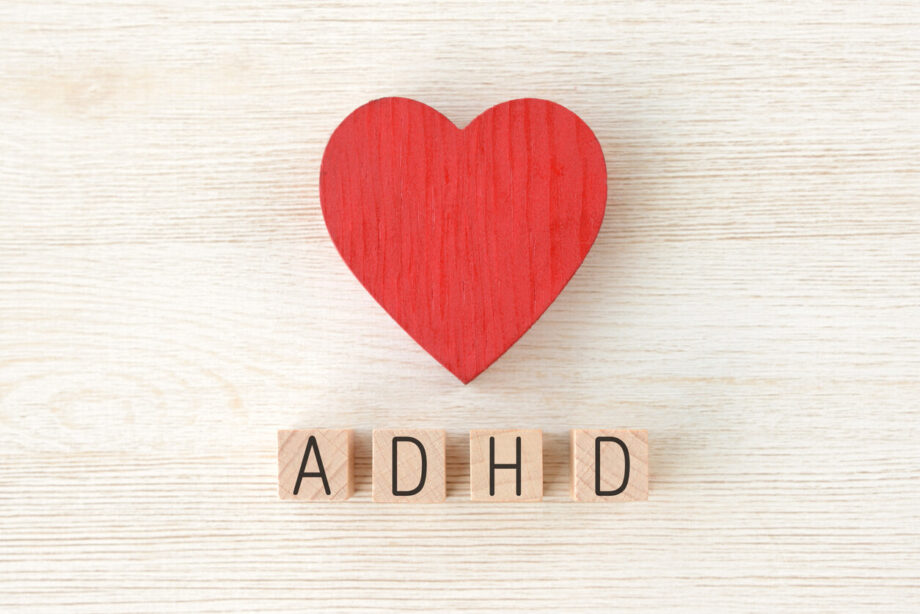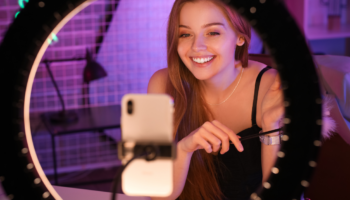Attention deficit hyperactivity disorder is a neurological condition that affects brain areas that allow you to focus at will, plan well and execute tasks. And it’s a lot more than, Oh, look! A squirrel! types of distractedness that common jokes suggest.
ADHD can be debilitating, especially if it goes unmanaged, and diagnostic delays are particularly common among Black and Latinx individuals and people who were assigned female at birth. Some people blame ADHD-related challenges largely on societal messaging and a world built for neuro-typicals, arguing that a different brain doesn't equal "disordered." Others believe the difficulties stem from a combination of those challenges and innate neurological problems.
Regardless of your stance, one thing seems clear: living with ADHD can bring challenges and strengths in all life areas, sexuality included. Anything that impacts the brain can influence our sex lives, given that everything from arousal and attraction to orgasm plays out there. And these effects vary from person to person.
Megan Fleming, PhD a sex and relationship therapist who identifies as having inattentive ADHD states, when it comes to the sex lives of people with ADHD:
“You really have to look at it on a case-by-case basis, and also certainly consider the relationship dynamics.”
Just as depression and anxiety affect people uniquely, she pointed out, no two people with ADHD will experience sexuality identically. That said, there are some common themes.
New Relationship Energy as “ADHD Candy”
Rachael Rose, a certified sexuality coach and educator, learned she has ADHD in her early teens when her brother was tested because of his “clearcut, hyperactive boy type” presentation that many people link with the disorder. Given the sex and gender disparities in diagnosis, she considers herself fortunate for having gained that self-awareness early on.
Several years ago, Rachael and her partner decided to open up their longterm, monogamous relationship. “It's been really great, but I can definitely see very clearly how ADHD plays a role,” she said, adding that new partners can bring a sense of novelty that functions like “ADHD candy that you want to chase after.”
The happy buzz known as new relationship energy could become problematic, she noted, if you have difficulty tending to the needs of longterm partners you care deeply about at the same time.
This type of scenario might also play out as frequent breakups or arguments because dating someone new or making up with a current partner spikes the feel-good brain chemicals folks with ADHD tend to lack and crave.
Rejection Sensitivity as a Buzzkill
Cris was diagnosed with ADHD, the combined type, in his early 20s while seeing a therapist for anxiety. Although he’s found “vanilla sex” to be boring and a pathway to feeling distracted because of insufficient stimulation, learning about and embracing kink have helped him enjoy sex.
Read: How to Have a Conversation about Kink with Your Partner
Even so, rejection sensitivity dysphoria (RSD)—a painful fear of being rejected that is symptomatic of ADHD—frequently stands in the way. He explains:
“I'm often horny because my mind wants the stimulation you get from sex and it's one of the easiest ways to do it. But I tend to avoid sex with others due to my RSD acting up. The fear of screwing up or disappointing my partner is very strong.”
Research shows that most teens and adults with ADHD are notably more sensitive to rejection than neurotypical folks, and nearly 1 in 3 consider RSD the most difficult part of the disorder.
While nearly everyone finds rejection unpleasant, it can be debilitating when you have ADHD, particularly when others or harmful messaging leads you to feel ashamed of your sensitivity.
What a neurotypical person might logically consider a “mild” issue, such as a sarcastic or judgmental comment, might fuel overwhelming pain that strikes suddenly and carries on for hours or days.
Distracted But Not Disinterested
Katherine Britto, an educational psychologist in Lima, Peru, was recently diagnosed with inattentive ADHD. During sex, her thoughts drift, drawing her away from pleasure and her partner.
"Sometimes it seems that I am not connected with the other. I look away or my mind is in another [place].”
Britto also struggles to make decisions and communicate about sex and dating, she said, which others have perceived as indifference. “It's a common stereotype about ADD women that we are not interested in others because we can forget romantic dates or it’s difficult to maintain communication,” she added. “I consider myself very (extremely) sensitive and these actions do not define my feelings.”
Distraction can also stem from hyper-focusing on anything but sex or intimacy. If you’re really into a new hobby or project, for instance, you might not feel able to pull yourself away to connect with your sexual desires or a partner.
Sensory sensitivities linked with ADHD can also be distracting, whether you don’t tolerate the scent of certain lubes or condoms or struggle to relax into sex with music or TV sounds nearby.
Read: Blind, Deaf, Mute: Sensory Deprivation Play
Sex as Necessary, Fun Adventures
For many people with ADHD, Fleming said,
“Sex is the one place where the mind quiets down, so that really can, for a couple, bring a heightened level of intimacy.”
You might consider sex not only fun and pleasurable but soothing and medicinal.
For C., who was diagnosed during childhood with the hyperactive ADHD, sex is a “much bigger part” of his life than he suspects it would be, were he neurotypical. “Sex is one of those forms of stimulation and novelty—like exercise and work—that I’d go insane without,” he said.
“The downside of this is that it can look and feel a lot like self-medicating. But it can also be a source of fun and adventure for whoever I’m with. I feel like ADHD allows me to more fully lose myself with someone and just have a good time without overthinking.”
Intellectual Stimulation and More Meaningful Sex
Mistress Kye was diagnosed with inattentive ADHD in her 40s when her niece was being evaluated for the disorder. “When looking at the literature on her diagnosis I realized I checked off most, if not all, of the boxes for ADD,” she said. She said the realization hit her “like a sledgehammer,” leading her to mourn her 20s and 30s. Still, she sees some positives to the way her brain functions.
Read: Sapiosexuality: When Smarts Turn Us On
“I've come to realize that I require a much more powerful intellectual connection in order to hold my attention, and thus allow me the opportunity to feel sexually attracted to someone,” she said, which might seem challenging, but it also leads to deeper connections with partners.
“In order for me to find someone attractive, they must first be interesting enough for my ADD wall to get busted through… I find great fulfillment and sexual attraction in someone I connect to on a strong intellectual level.”
Making the Most of Sex
For many people with ADHD, self-awareness and treatment go a long way toward managing symptoms that detract from sex. “When I started stimulant meds, I could finally calm down enough to enjoy sex for more than like five minutes,” said AJ, who was diagnosed with ADHD in her mid-20s.
“Also with medication, I don’t fall into major depression that made life hellish. I’m more interested in pleasure in general...and I don't impulsively go for sex with just anyone. I make more measured choices, which feels healthier.”
Finding strength in a community can help profoundly, too. “I joined a support group and was like, oh my god,” AJ recalled. “There are many of us… I don’t feel so ‘strange’ anymore.”
Final Thoughts
If you’re really struggling, you may want to consider working with a qualified therapist or coach who is well-versed in both ADHD and sexuality. Therapy can also help you work through shame, anxiety and low-self esteem that commonly coincide with ADHD.
Read: Hiring a Sex Coach Was the Best Thing I Ever Did for My Sex Life
Many people with ADHD grew up feeling misunderstood or being labeled as “bad,” said Fleming, leading to deep-rooted self-esteem issues and derivative shame. Bringing that shame into the light and unpacking it with supportive loved ones or professionals can help allow your strengths to shine brighter.
And those strengths tend to be many. People with ADHD are often highly creative, empathetic, innovative and calm during crises, for example, all of which can benefit sexual intimacy and relationships. Getting support and embracing your strengths are powerful ways to make way for the pleasure and fulfillment you deserve.




